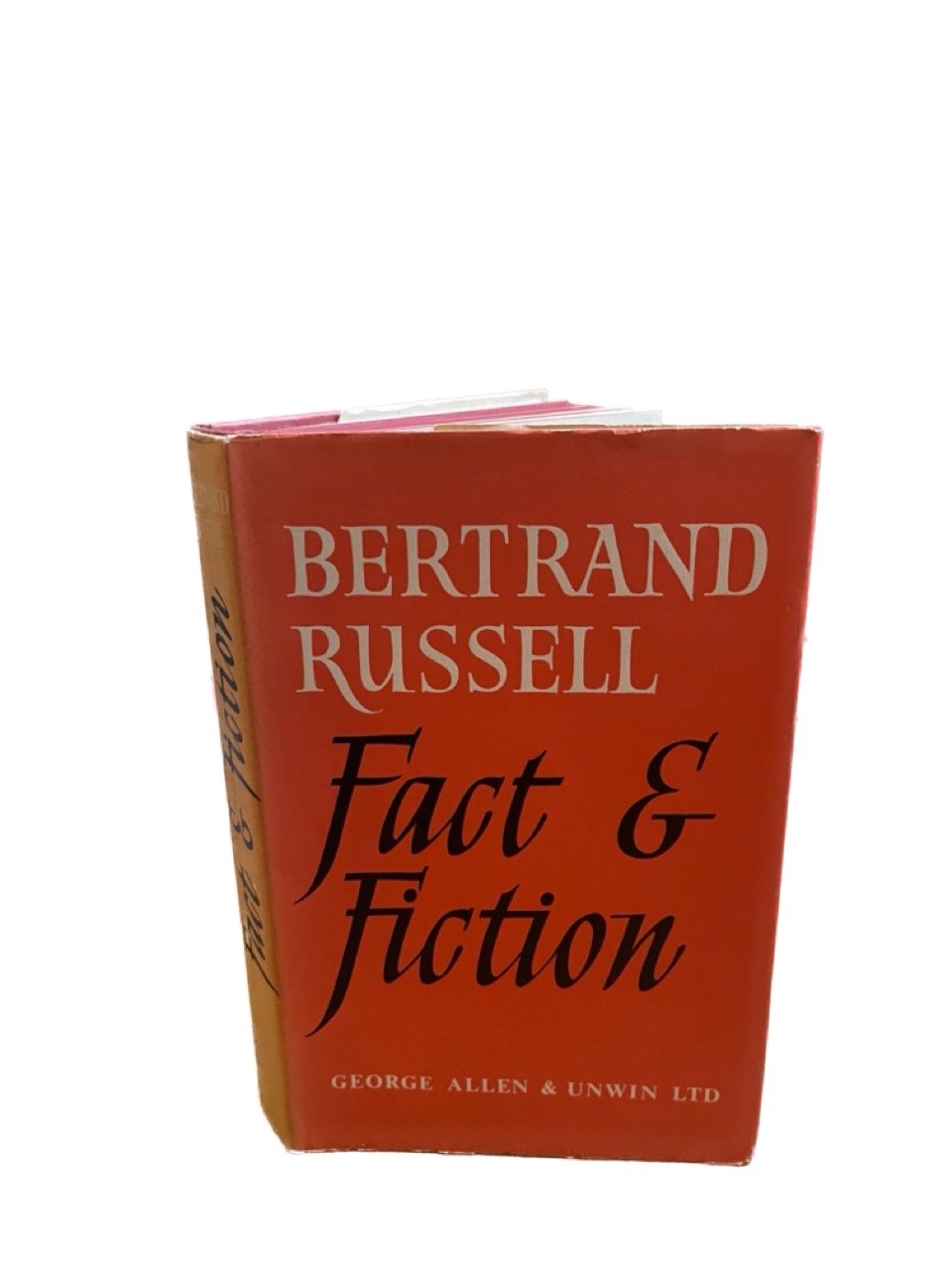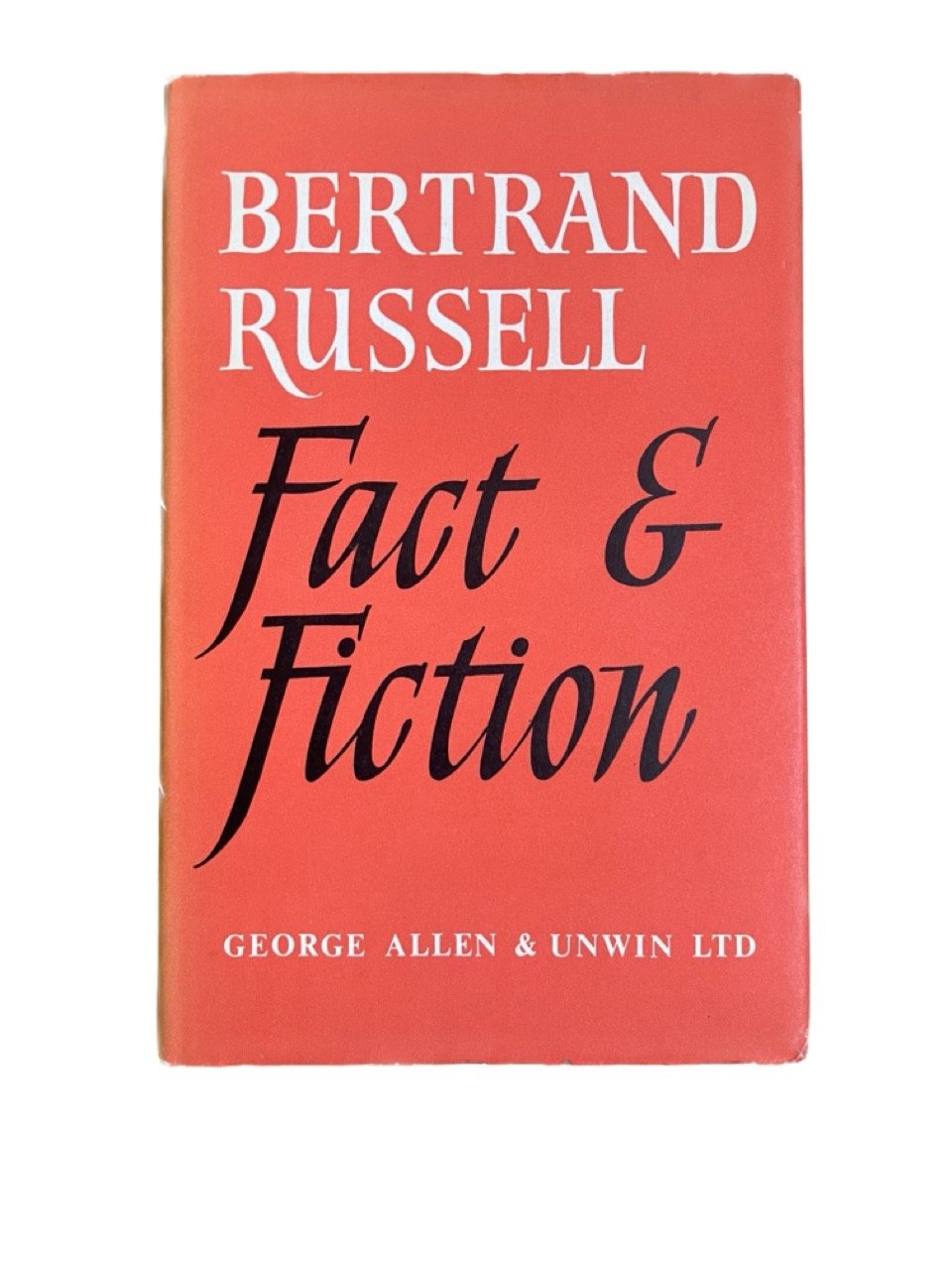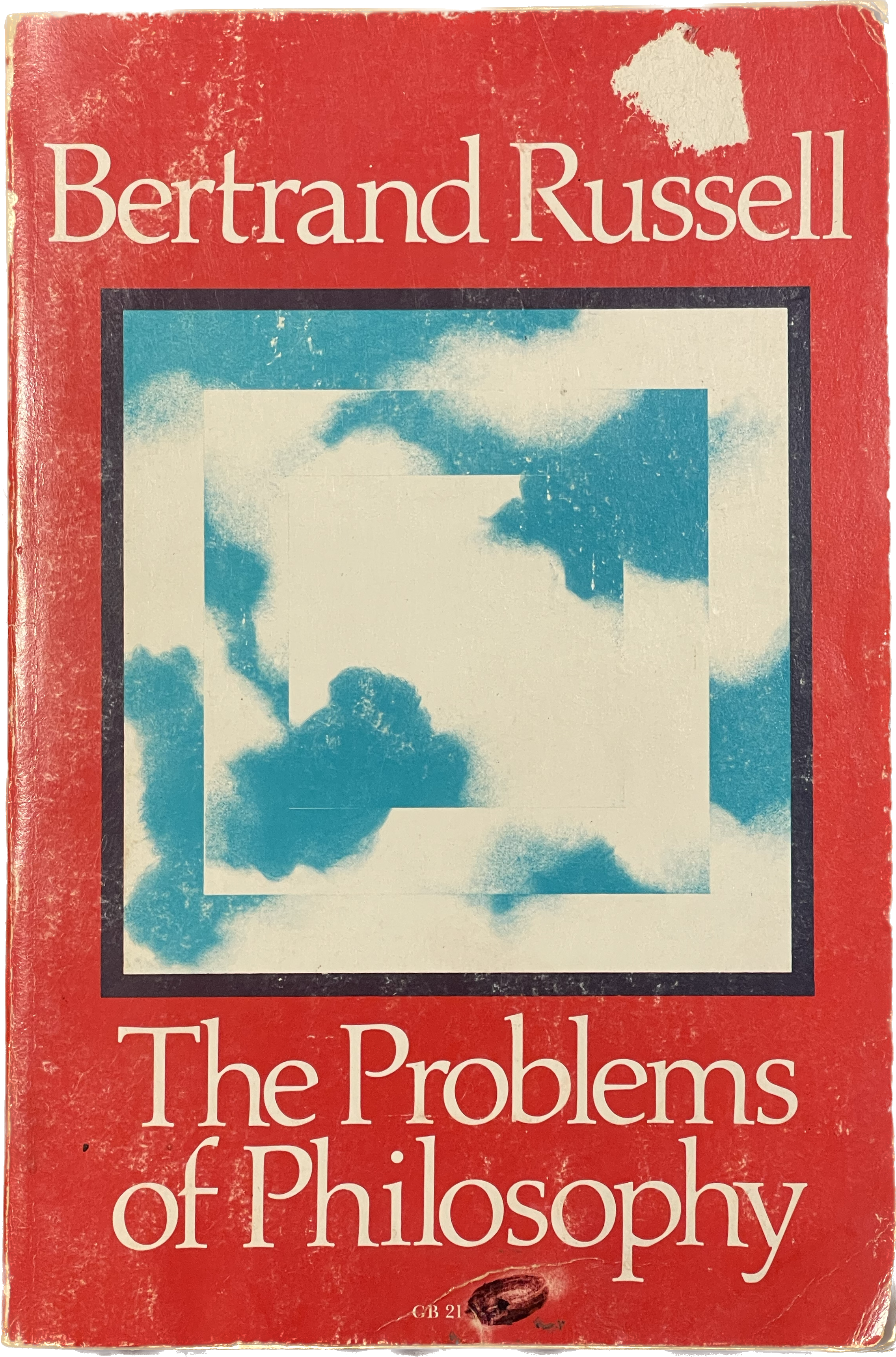Fact and Fiction
Bertrand Russell
This new collection of essays and stories by the influential modern philosophers is divided into four parts that influenced him in youth, broadly speaking from the age of fifteen to the age of twenty-one. This was an age when a book was an adventure, and enormously important to him when first exploring the world and trying to determine his attitude towards it. These writers whom he selects for discussion are Shelley, Turgenev, Isben, Milton, certain historians (especially Gibbon), andt the great mathematical writers.
The second part is devoted to essays on politics and education (‘What is Freedom?’; ‘What is Democracy?’; “Pros and Cons of Nationalism’; ‘The World I would like to live in’, etc). The third part is one of divertissements, parables, night-mares and dreams, the dreams being recorded exactly as dreamt and in no way decorated or improved.
Finally, there are eleven essays and addresses concerned with peace and war, which include some of Bertrand Russell’s famous public pronouncements on nuclear warfare and international tension.
This is a highly characteristic book, demonstrating the great width of the author’s interests and the depth of his convictions, but rich in wit and humour.
Bertrand Russell
This new collection of essays and stories by the influential modern philosophers is divided into four parts that influenced him in youth, broadly speaking from the age of fifteen to the age of twenty-one. This was an age when a book was an adventure, and enormously important to him when first exploring the world and trying to determine his attitude towards it. These writers whom he selects for discussion are Shelley, Turgenev, Isben, Milton, certain historians (especially Gibbon), andt the great mathematical writers.
The second part is devoted to essays on politics and education (‘What is Freedom?’; ‘What is Democracy?’; “Pros and Cons of Nationalism’; ‘The World I would like to live in’, etc). The third part is one of divertissements, parables, night-mares and dreams, the dreams being recorded exactly as dreamt and in no way decorated or improved.
Finally, there are eleven essays and addresses concerned with peace and war, which include some of Bertrand Russell’s famous public pronouncements on nuclear warfare and international tension.
This is a highly characteristic book, demonstrating the great width of the author’s interests and the depth of his convictions, but rich in wit and humour.
Bertrand Russell
This new collection of essays and stories by the influential modern philosophers is divided into four parts that influenced him in youth, broadly speaking from the age of fifteen to the age of twenty-one. This was an age when a book was an adventure, and enormously important to him when first exploring the world and trying to determine his attitude towards it. These writers whom he selects for discussion are Shelley, Turgenev, Isben, Milton, certain historians (especially Gibbon), andt the great mathematical writers.
The second part is devoted to essays on politics and education (‘What is Freedom?’; ‘What is Democracy?’; “Pros and Cons of Nationalism’; ‘The World I would like to live in’, etc). The third part is one of divertissements, parables, night-mares and dreams, the dreams being recorded exactly as dreamt and in no way decorated or improved.
Finally, there are eleven essays and addresses concerned with peace and war, which include some of Bertrand Russell’s famous public pronouncements on nuclear warfare and international tension.
This is a highly characteristic book, demonstrating the great width of the author’s interests and the depth of his convictions, but rich in wit and humour.







